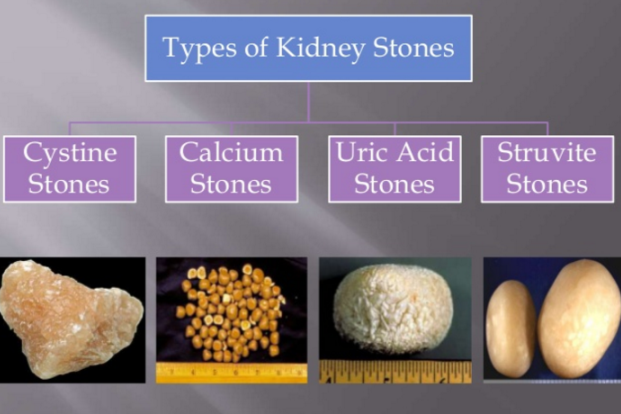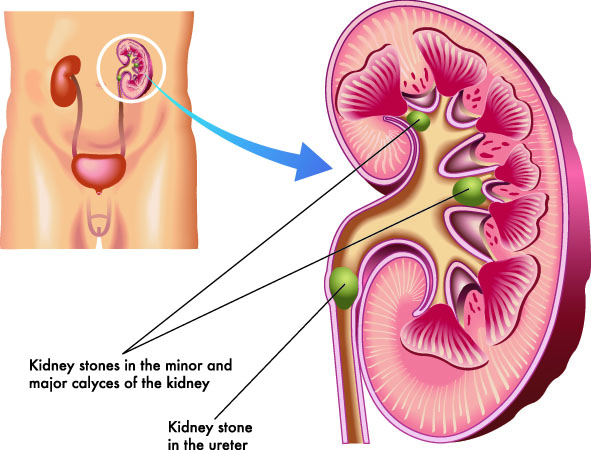Understanding the Key Differences Between Kidney Stones and Urinary System Infections: A Detailed Summary for Individuals
Recognizing the distinctions between kidney stones and urinary system system infections (UTIs) is vital for individuals who might be experiencing similar signs and symptoms yet deal with significantly various wellness obstacles. While both problems can materialize pain in the reduced abdomen or back, their hidden causes, diagnostic techniques, and treatment protocols diverge considerably. A nuanced understanding of these differences not only aids in exact self-assessment however likewise notifies discussions with healthcare companies. As we check out these vital elements, it becomes clear that acknowledging the one-of-a-kind attributes of each condition can greatly influence individual results. What could be the finest strategy to addressing these distinctions?
Introduction of Kidney Stones
The development of kidney stones, a commonly devastating and unpleasant condition, underscores the vital relevance of maintaining renal wellness. The key types of kidney stones include calcium oxalate, calcium phosphate, uric acid, struvite, and cystine stones, each with distinct reasons and danger variables.
A number of variables add to the development of kidney stones. Furthermore, metabolic conditions and specific clinical problems may incline people to stone formation.
Symptoms of kidney stones can include extreme flank hematuria, discomfort, and queasiness, which commonly trigger urgent clinical evaluation. Therapy choices vary, ranging from increased fluid consumption and nutritional adjustments to medical treatments such as lithotripsy or medical elimination, depending upon the size and area of the stones. Recognizing these facets is essential for reliable prevention and management.
Review of Urinary Tract Infections
Urinary system tract infections (UTIs) stand for an usual yet considerable health problem, affecting millions of people annually. These infections happen when microorganisms go into the urinary system, which consists of the kidneys, ureters, bladder, and urethra.
The risk aspects for developing a UTI include sex, specific kinds of birth control, urinary retention, and a background of previous infections. People with weakened pre-existing conditions or immune systems, such as diabetic issues, might also be at better threat. UTIs can be classified into two main kinds: complex and uncomplicated. Straightforward UTIs are typically limited to the bladder and are extra common in healthy people, while complex UTIs might involve the kidneys and happen in those with underlying health issues.
Motivate diagnosis and therapy are necessary to stop difficulties, such as recurring infections or kidney damage (Kidney Stones vs UTI). Normally, UTIs are treated with antibiotics, and precautionary actions can be employed for those with frequent occurrences
Usual Signs And Symptoms Contrast
Symptoms of urinary system tract infections and kidney stones can frequently overlap, leading to complication in medical diagnosis. In contrast, kidney stones tend to create severe, sharp pain that emits from the back to the reduced abdominal area and groin, usually defined as colicky pain.
In addition, UTIs may be accompanied by high temperature and chills, specifically in a lot more severe instances, while kidney stones can bring about queasiness and throwing up because of extreme pain. Both problems can lead to blood in the urine (hematuria), but the existence of blood is more generally connected with kidney stones. While discomfort during peeing is a trademark of UTIs, kidney stones generally offer with more sharp pain episodes, which might go and come. Recognizing these sign differences can assist patients in identifying their condition, although medical analysis remains necessary for precise medical diagnosis and treatment.
Medical Diagnosis Approaches
Just how can healthcare professionals properly distinguish between kidney stones and urinary tract infections? The diagnostic procedure begins with a comprehensive case history and an in-depth review of the person's signs and symptoms. Medical professionals often carry out a physical evaluation, which may reveal inflammation in the abdomen or flank area, assisting the analysis pathway.
Lab tests play a vital function in identifying between these two problems. Kidney Stones vs UTI. A urinalysis can recognize the visibility of blood, crystals, or microorganisms, which are a measure of either condition. In instances of urinary system system infections, the urinalysis may show a substantial existence of white blood cells and nitrites, while kidney stones might provide with certain crystals
Imaging studies, such as abdominal ultrasound or computed tomography (CT) checks, are crucial for picturing kidney stones. These imaging methods allow health care service providers to assess stone dimension, area, and prospective blockages in the urinary system. On the other hand, urinary system tract infections generally do not call for imaging unless issues are believed.
Together, these analysis methods encourage health care experts to accurately set apart and identify between kidney stones and urinary system infections, making sure that patients receive suitable care and monitoring.
Treatment Options and Avoidance
While both kidney stones and urinary system infections (UTIs) require prompt therapy, their management methods vary substantially.
The therapy for kidney stones commonly includes pain monitoring, hydration, and in some situations, medical procedures such as extracorporeal shock wave lithotripsy (ESWL) or ureteroscopy to damage or get rid of down stones. Clients are often suggested to increase liquid intake to assist in stone flow and reduce reappearance. Dietary modifications may likewise be needed, depending upon the stone kind.
On the other hand, UTIs are primarily treated with antibiotics to eliminate the bacterial infection. The particular antibiotic recommended depends upon the microorganisms recognized and local resistance helpful resources patterns. Extra procedures, such as boosted liquid intake and urinary system analgesics, might aid alleviate signs and symptoms.
Avoidance methods differ too; for kidney stones, maintaining adequate hydration and sticking to dietary constraints can be effective. For UTIs, preventive approaches include correct health practices, urinating after sexual intercourse, and possibly prophylactic prescription antibiotics for reoccurring infections. Understanding these therapy and prevention techniques is important for reliable monitoring and to lessen the risk of issues related to both conditions.
Conclusion

Comprehending the distinctions in between kidney stones and urinary system tract infections (UTIs) is essential for patients that may be experiencing similar signs and symptoms yet encounter greatly different health obstacles. The main types of kidney stones include calcium oxalate, calcium phosphate, uric acid, struvite, and cystine stones, each with distinct reasons and risk variables.
